If you’re planning to renovate your home in Singapore, you might need a home renovation loan to finance the project. A home renovation loan is a type of personal loan that allows you to borrow money to fund your home renovation project. Applying for a home renovation loan in Singapore can be a daunting task, especially if you’re not familiar with the process. However, with the right information and preparation, you can make the process smoother and more manageable.
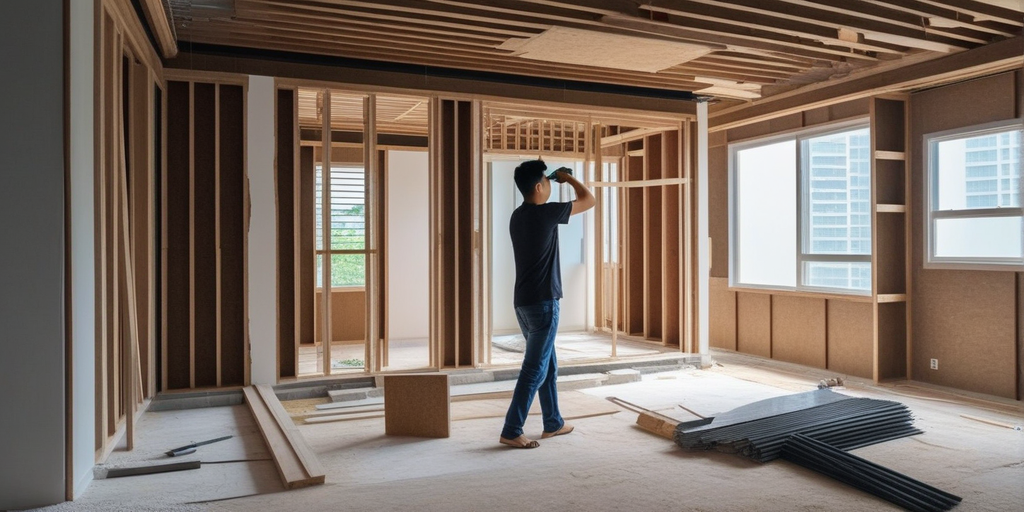
To help you get started, this article will guide you through the process of applying for a home renovation loan in Singapore. We’ll cover everything you need to know, from understanding home renovation loans and eligibility requirements to preparing your loan application, choosing the right bank and loan option, and applying for your renovation loan. We’ll also provide answers to some frequently asked questions about home renovation loans in Singapore.
Understanding Home Renovation Loans in Singapore
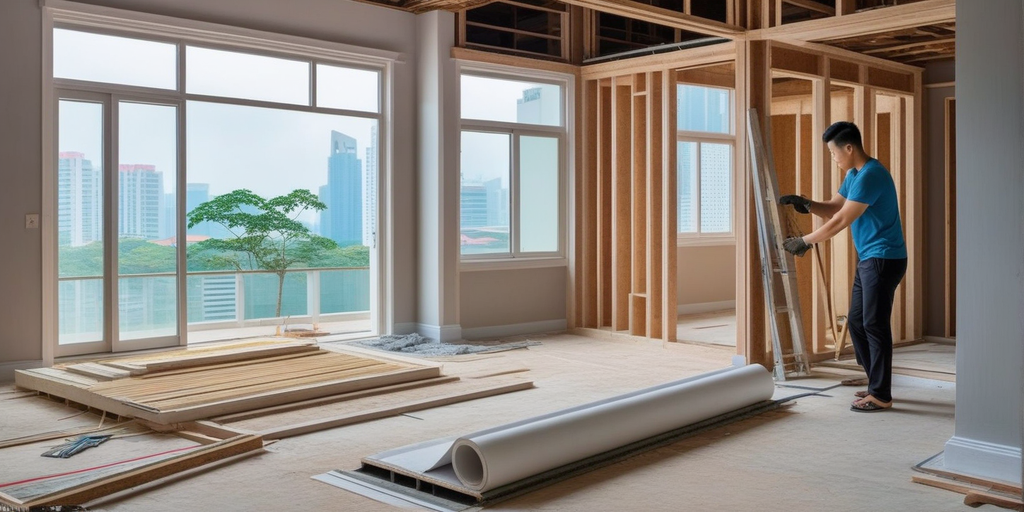
If you’re planning to renovate your home in Singapore, you may be considering taking out a home renovation loan. A renovation loan is a type of loan that is specifically designed to help homeowners finance their home renovation projects. In this section, we’ll explain the different types of renovation loans available in Singapore and help you understand how they work.
Types of Renovation Loans
There are two main types of renovation loans available in Singapore: secured and unsecured loans. A secured loan is a loan that is backed by collateral, such as your home or other property. An unsecured loan, on the other hand, is a loan that is not backed by collateral.
Secured renovation loans typically have lower interest rates than unsecured loans because the lender has some security in case you default on the loan. However, if you’re unable to repay the loan, you risk losing your collateral.
Unsecured renovation loans, on the other hand, don’t require collateral, but they generally have higher interest rates than secured loans. This is because the lender takes on more risk by lending you money without any collateral.
Comparing Home Renovation Loans and Personal Loans
If you’re considering taking out a home renovation loan, you may also be considering a personal loan. While both types of loans can be used to finance your home renovation project, there are some key differences between them.
A personal loan is an unsecured loan that can be used for any purpose, while a home renovation loan is specifically designed for home renovation projects. Personal loans generally have higher interest rates than home renovation loans because they are unsecured.
When comparing home renovation loans and personal loans, it’s important to consider the interest rates and other fees associated with each type of loan. You should also consider the loan amount, loan tenure, and repayment terms.
Eligibility and Requirements
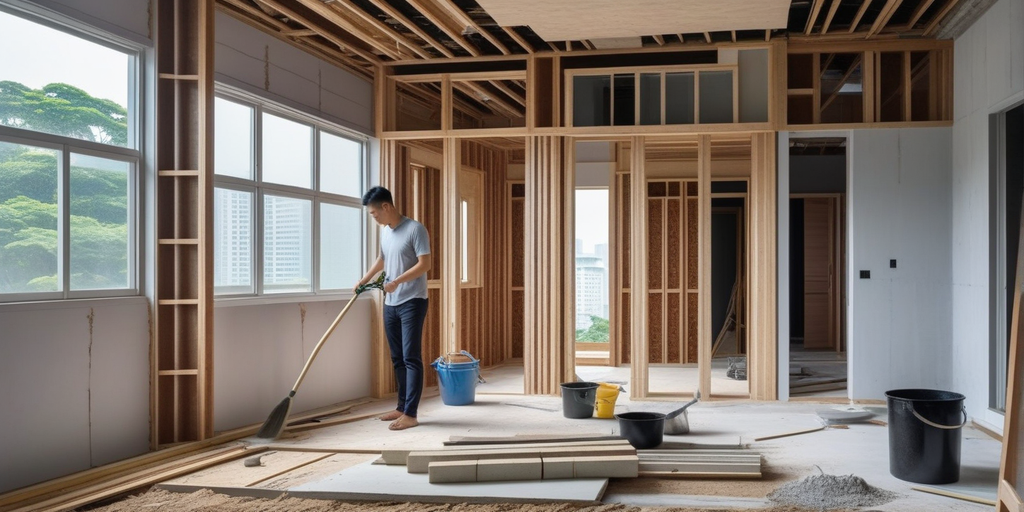
If you’re considering a home renovation loan in Singapore, it’s important to understand the eligibility and requirements. Before applying, you should check with the lender to ensure you meet their specific criteria. Here are some general requirements you should keep in mind:
Minimum Age and Income
To apply for a home renovation loan in Singapore, you must be at least 21 years old and have a minimum income of S$24,000 per annum. Some lenders may have higher income requirements, so it’s important to check with them directly.
Citizenship and Residency Criteria
As a Singapore citizen or permanent resident, you’ll have an easier time qualifying for a home renovation loan. If you’re a foreigner, you may still be eligible, but you’ll need to meet additional criteria. Some lenders require you to have a valid work permit or employment pass, while others may require you to have been living in Singapore for a certain period of time.
Credit Score and Financial History
Your credit score and financial history will also play a role in determining your eligibility for a home renovation loan. Most lenders will check your credit report to ensure you have a good track record of paying off debts. If you have a poor credit score, it may be more difficult to qualify for a loan or you may be charged a higher interest rate.
To improve your chances of being approved for a home renovation loan, you should also ensure that you have a stable income and a low debt-to-income ratio. This will show lenders that you’re financially responsible and capable of repaying the loan.
Overall, if you meet the eligibility requirements and have a good credit score and financial history, you should be able to qualify for a home renovation loan in Singapore.
Preparing Your Loan Application
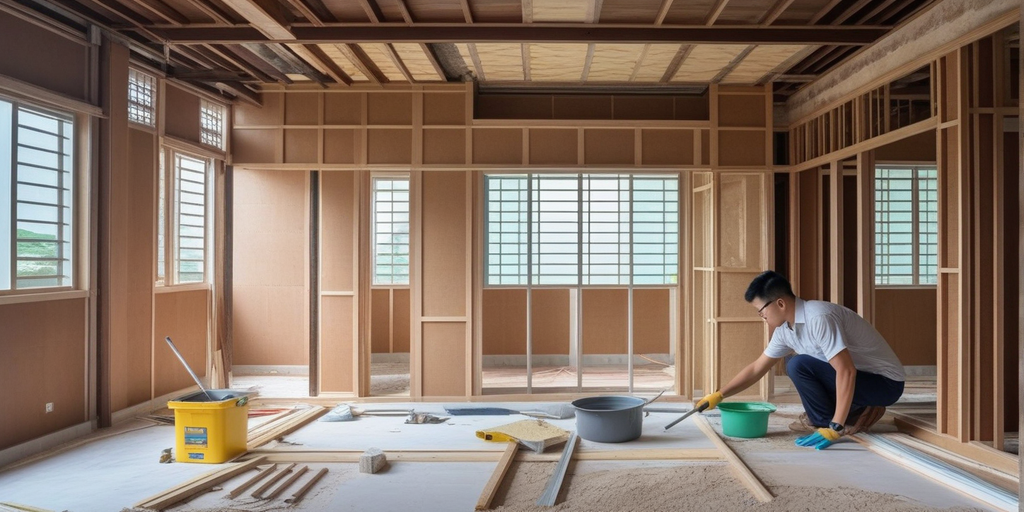
When you are ready to apply for a home renovation loan in Singapore, it is important to be prepared. This means you will need to gather the necessary documents, calculate your loan amount and tenure, and understand the interest rates and fees associated with the loan.
Required Documents
Before you can apply for a home renovation loan, you will need to provide the lender with some important documents. These may include:
- Your NRIC or passport
- Proof of income (such as your payslips or CPF statements)
- Your renovation quotation or invoice
- Proof of home ownership (such as your HDB flat lease agreement or property title)
Make sure you have these documents ready before you start the loan application process. This will help to speed up the process and ensure that your application is processed quickly.
Calculating Your Loan Amount and Tenure
When applying for a home renovation loan, it is important to calculate the amount of money you need to borrow and the length of time you need to repay the loan. You can use a loan calculator to help you determine these figures, or you can speak to a loan officer at the bank.
Keep in mind that the longer your loan tenure, the lower your monthly payments will be, but the more interest you will pay over the life of the loan. Conversely, a shorter loan tenure will result in higher monthly payments, but you will save money on interest charges.
Understanding Interest Rates and Fees
When you apply for a home renovation loan in Singapore, you will be charged a variety of fees and interest rates. These may include processing fees, handling fees, admin fees, and interest charges.
Make sure you understand these fees and charges before you apply for the loan. This will help you to avoid any surprises later on and ensure that you can afford to repay the loan.
Overall, applying for a home renovation loan in Singapore can be an exciting process. By being prepared and understanding the loan application process, you can increase your chances of being approved for the loan you need to complete your home renovation project.
Choosing the Right Bank and Loan Option
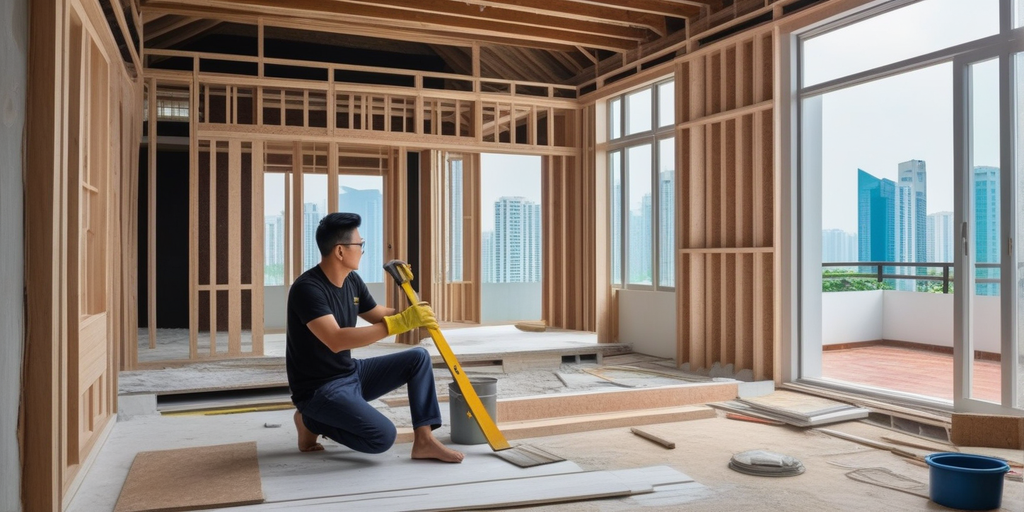
When it comes to choosing the right bank and loan option for your home renovation project, you have several options to consider. Here are a few popular choices to get you started:
DBS Renovation Loan
DBS offers a renovation loan that allows you to borrow up to 6 times your monthly salary or $30,000, whichever is lower. The loan has a fixed interest rate of 4.88% per annum, and you can choose a repayment period of up to 5 years. With DBS’s renovation loan, you can also enjoy comprehensive insurance coverage for added peace of mind.
OCBC Renovation Loan
OCBC offers a renovation loan that allows you to borrow up to 6 times your monthly salary or $30,000, whichever is lower. The loan has a fixed interest rate of 4.98% per annum, and you can choose a repayment period of up to 5 years. With OCBC’s renovation loan, you can also enjoy a waiver of processing fees and early repayment fees.
HSBC and Standard Chartered Personal Loan Options
If you’re looking for a more flexible loan option, consider HSBC or Standard Chartered’s personal loan options. With HSBC’s personal loan, you can borrow up to 8 times your monthly salary or $200,000, whichever is lower. The loan has a fixed interest rate of 3.7% per annum, and you can choose a repayment period of up to 7 years. With Standard Chartered’s CashOne Personal Loan, you can borrow up to 4 times your monthly salary or $250,000, whichever is lower. The loan has a variable interest rate starting from 3.88% per annum, and you can choose a repayment period of up to 5 years.
When choosing a bank or financial institution for your renovation loan, it’s important to consider factors such as interest rates, repayment periods, processing fees, and early repayment fees. Take the time to compare loan options from different providers to find the one that best suits your needs and budget.
Applying for Your Renovation Loan
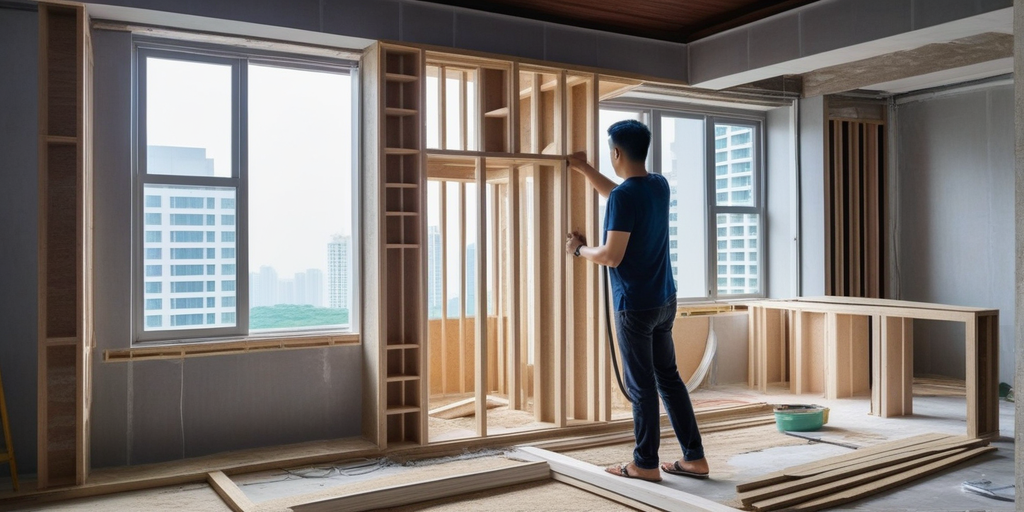
If you are planning to renovate your home, you may be wondering how to apply for a renovation loan. Fortunately, the process is quite straightforward, and you can easily apply online or in-person.
Online Application Process
Applying for a renovation loan online is a hassle-free process that can be completed in just a few simple steps. To apply for a renovation loan online, follow these steps:
- Find a reputable lender that offers renovation loans, such as DBS, POSB, or OCBC.
- Visit the lender’s website and click on the “Apply Now” button.
- Fill out the online application form with your personal and financial details.
- Upload the required documents, such as your NRIC, income documents, and renovation quotation.
- Submit your application and wait for the lender’s response.
Most lenders offer an online application process that is fast, easy, and convenient. Plus, you can apply from the comfort of your own home, at any time of the day or night.
In-Person Application Steps
If you prefer to apply for a renovation loan in-person, you can visit your preferred lender’s branch and follow these steps:
- Bring along your NRIC, income documents, and renovation quotation.
- Speak to a loan officer and provide them with your details.
- Fill out the loan application form.
- Submit the required documents.
- Wait for the lender’s response.
Applying for a renovation loan in-person can be a good option if you prefer to speak to a loan officer face-to-face. You can ask any questions you may have and get personalized advice on your loan application.
Whether you choose to apply online or in-person, make sure you have all the necessary documents ready before you start your loan application. This will help ensure a smooth and hassle-free application process.
After Loan Approval
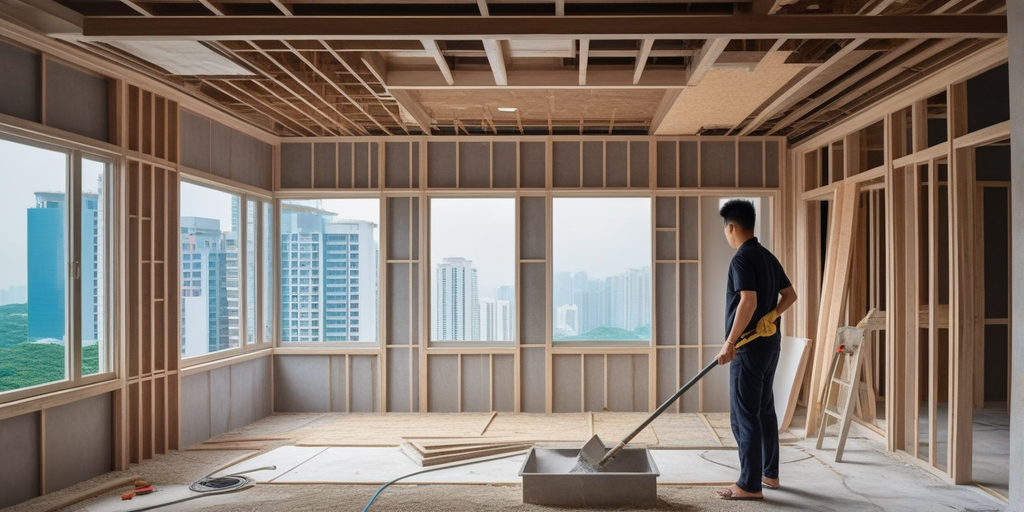
Congratulations on getting your renovation loan approved! Now that you have secured the funding for your renovation project, it’s time to start planning and executing it. In this section, we will go through what you can expect after your loan is approved.
Funding Your Renovation Project
Once your loan is approved, the loan quantum will be disbursed directly to your contractor or to you, depending on the arrangement you have with the bank. You can then use the funds to pay for your renovation costs, such as materials, labour, and other expenses.
It is important to keep track of your renovation costs and ensure that they do not exceed the loan quantum. If you need additional funds, you can consider applying for a top-up loan or using your savings to cover the extra costs.
Managing Repayments and Fees
Your renovation loan will be charged at a monthly rest interest rate, which means that the interest is calculated based on the outstanding loan amount at the end of each month. This can help you save on interest charges if you make early repayments.
Late payment fees may also be charged if you miss your loan repayments. It is important to make timely payments to avoid incurring additional fees and charges.
To manage your loan repayments and fees, you can consider setting up a GIRO arrangement with your bank. This will allow your loan repayments to be automatically deducted from your bank account on a monthly basis, ensuring that you do not miss any payments.
In conclusion, getting a renovation loan can help you finance your renovation project and turn your dream home into a reality. By managing your loan repayments and fees, you can ensure that your loan is repaid on time and avoid incurring additional charges.
Frequently Asked Questions
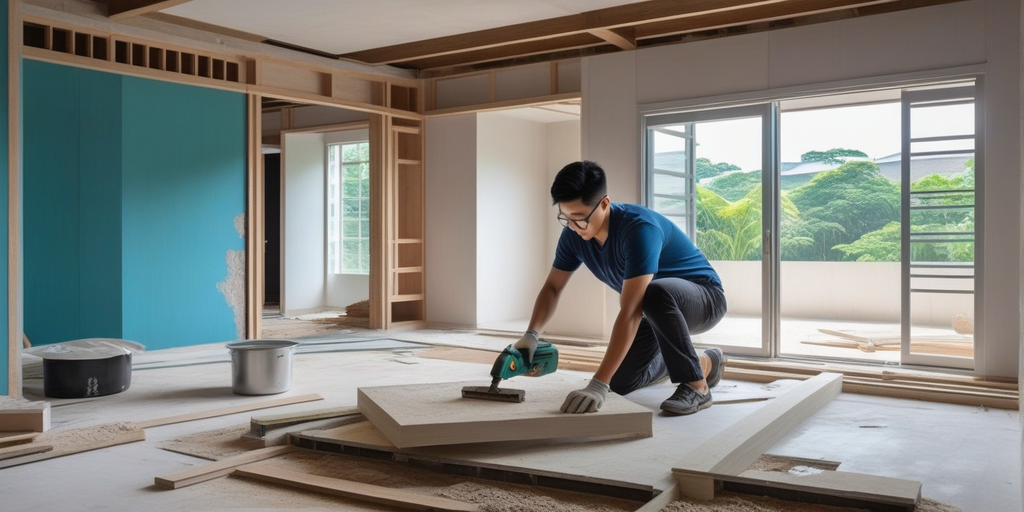
What’s the maximum amount I can borrow for sprucing up my home?
The maximum amount you can borrow for a home renovation loan depends on the lender you choose and your creditworthiness. Typically, banks in Singapore offer renovation loans ranging from S$5,000 to S$30,000. However, some lenders may offer higher amounts depending on your eligibility criteria.
How quickly can I get my hands on a renovation loan from DBS?
DBS renovation loan processing time can take up to 7 to 10 working days. However, the processing time may vary depending on the complexity of your application and the completeness of your documentation.
Is it possible to secure a renovation loan even if my credit history’s a bit bumpy?
Yes, it is possible to secure a renovation loan even if you have a poor credit history. However, you may have to pay a higher interest rate than someone with a good credit score. Some lenders may also require additional documentation to assess your creditworthiness.
Could you explain how an in-house renovation loan could brighten up my dwelling?
An in-house renovation loan is a loan offered by a renovation company or contractor. This type of loan is usually offered to customers who engage the services of the renovator. The loan is used to pay for the renovation services, and the amount is added to the overall renovation cost. This type of loan can be beneficial as it simplifies the renovation process and allows you to deal with a single entity for both renovation services and financing.
Who offers the most smashing renovation loan deals in Singapore?
There are several banks and financial institutions in Singapore that offer renovation loans. Some of the most popular ones include DBS, OCBC, UOB, and Maybank. Each lender has its own set of eligibility criteria, interest rates, and loan terms. It’s essential to compare the different offers and choose the one that best suits your needs.
What steps should I take to snag a renovation loan from Maybank?
To apply for a renovation loan from Maybank, you need to first check your eligibility criteria and gather all the necessary documentation. You can then fill out an online application form or visit a Maybank branch to apply in person. Once you submit your application, Maybank will review your application and notify you of the outcome. If your application is approved, the loan amount will be disbursed to your account.

